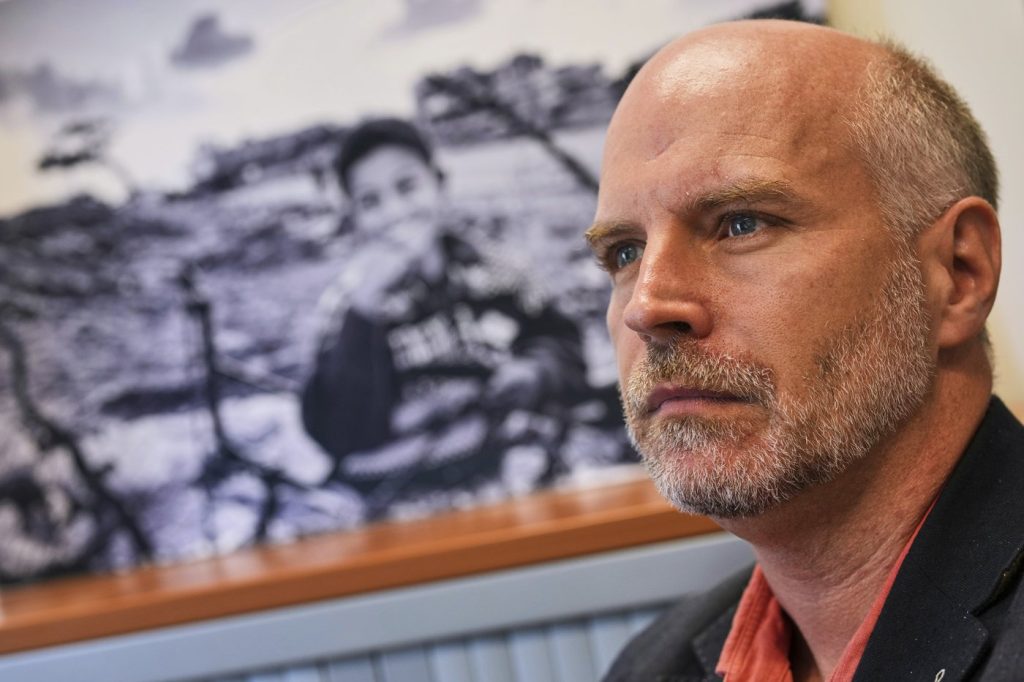BRUSSELS (AP) — A United Nations official has warned that if Israel proceeds with its planned military offensive in Gaza City, "all hope is gone" for peace in the region. This statement comes amidst growing international concern for the hundreds of thousands of residents in Gaza, particularly as famine conditions threaten to worsen following 22 months of ongoing conflict.
Israel has described the evacuation of Gaza's most populated city as "inevitable." Sam Rose, the acting director of Gaza operations for the UN Relief and Works Agency for Palestine Refugees (UNRWA), expressed that many individuals within the city, especially those too old, young, or ill, are unable to evacuate as Israeli tanks and armored vehicles gather at the outskirts. He emphasized the extreme fear and suffering experienced by the population, stating, "You’ve got a population that’s living in abject fear, in abject cruelty, abject humiliation, that has no control whatsoever over their day-to-day, their minute-to-minute lives." Rose highlighted the detrimental impact of this situation on families and children, many of whom have only ever known life in conflict.
Rose argued that rather than a military offensive, all efforts should be directed toward providing humanitarian services and support to keep residents alive. He noted that prior to the outbreak of hostilities following the Hamas-led attack on Israel on October 7, 2023, UNRWA was supplying food to 1.2 million individuals daily in Gaza. The dire humanitarian situation has worsened, with an alarming 6,000 trucks containing essential aid—including food, medicine, fuel, and water—currently stalled at the Gaza border, largely due to Israeli restrictions.
European Commissioner for Humanitarian Aid and Crisis Management, Hadja Lahbib, has similarly criticized the situation, stating that vast quantities of aid remain at the Gaza border while calling for increased access to aid to "save lives." She remarked that an agreement between the European Union and Israel to expedite aid deliveries has not been effective. Israel’s government has defended its aid policies, asserting that it has permitted sufficient aid to reach Gaza amidst the conflict. However, UN reports suggest that the volume of aid entering Gaza is still significantly below pre-war levels of around 600 trucks per day.
Israeli Prime Minister Benjamin Netanyahu has refuted claims of famine in Gaza, labelling recent famine reports by international food security experts as "an outright lie." This month, the Integrated Food Security Phase Classification reported that nearly half a million people, about one-fourth of Gaza's population, are facing severe hunger and risk of malnutrition-related deaths. The stark divide between Israeli government claims and international assessments highlights the complexities and tensions surrounding the humanitarian crisis in Gaza.
As the situation continues to evolve, the global community remains watchful, advocating for urgent humanitarian relief while grappling with the realities of ongoing conflict and escalating humanitarian needs.











